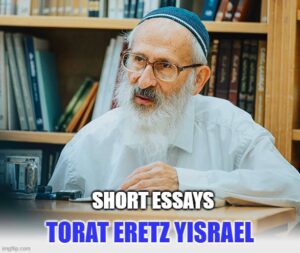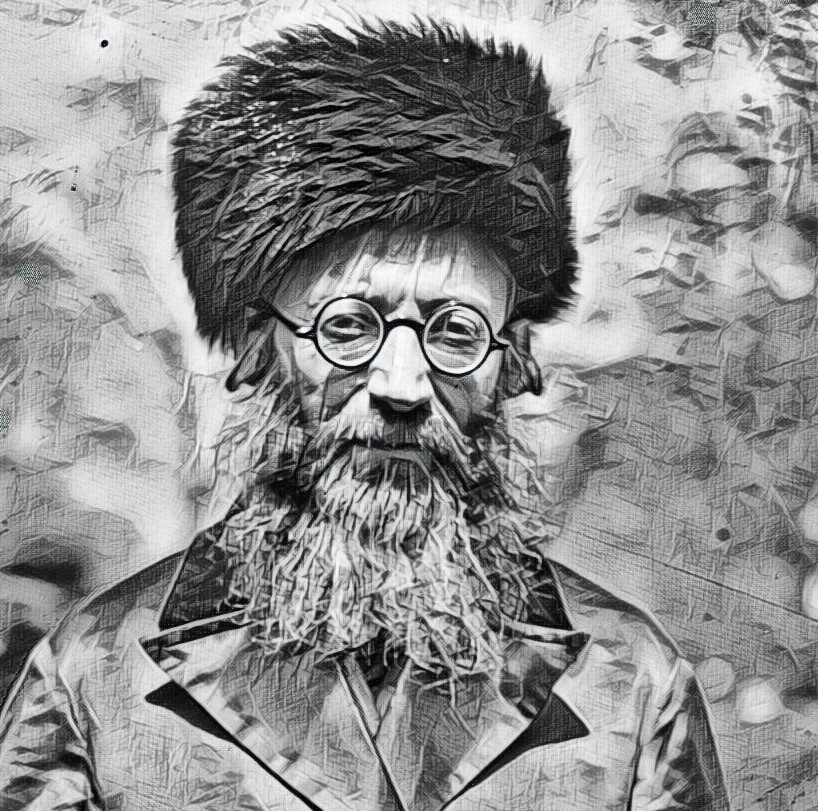Has the Time Come to Learn Mysticism?
by HaRav Shlomo Aviner, head of Yeshivat Ateret Yerushalayim

Many ask: Perhaps the time has come for us to delve into Jewish mysticism? The answer is not just “perhaps,” but “certainly.” In any event, this is the strongly held opinion of our master Rabbi Avraham Yitzchak Kook, that this is the only way to save our generation from heresy, which is our greatest threat, and to restore the generation to repentance (Orot Ha-Teshuva 4:9). Obviously, there is no slight intended here to all the other holy spheres of the Torah – Gemara and Halachah, ethics and faith. Yet none of these will succeed without the soul of the Torah, the mystical component of the Torah.
You might ask: Are we so much greater than previous generations? Does our studying mysticism not constitute arrogance? Shouldn’t the simpler parts of the Torah, so full of purity and holiness, suffice for us? The answer is that certainly, we are insignificant, but you cannot compare different generations, and now the time has come. Beforehand, it had not yet come. For example, Rav Kook explained at the end of a long treatise that over the course of the Exile, all the nationalistic ideas were stored away in Jewish mysticism, because they had no basis in “reality.”. Now, however, that the nation is being reborn, we have to reveal all of these concealed ideas that have to do with nationalism and having a state, so that we can revive the foundation of our rebirth. (Orot 117-118).
Obviously, that does not mean that the time has come regarding ALL the secrets. Rav Kook testified that it was hard for him to describe which secrets would cause damage if revealed, and which would bring a blessing. He discussed this in the context of renewing the path to repentance. In the Exile, the concept of repentance was linked to reverence and submission, but now that the light of salvation is shining forth, it should be linked to joy and courage. Yet we have to proceed with great caution to make certain that our education does not nullify the caution and reverence that was present down through the generations among fine, righteous Jews (Letter 378, printed at the beginning of Orot Ha-Teshuva). Indeed, this is a very important consideration; but in general, the time has certainly come for the secrets of the Torah, as Rav Kook testified about himself: “There is nothing from my own thoughts and opinions that does not have a source in the writings of the Arizal” (Li-Shlosha Be-Elul 1:46).
One might ask: Did our great master, Rav Kook, forget an explicit ruling of the Shulchan Aruch, that learning mysticism is just for people who are great in Torah, “once they have filled themselves with ‘meat and wine’, namely, the dietary laws and all the laws of the Mitzvot?” (Rav Moshe Isserlis’s comment on Yoreh Deah 246:4). This ruling was supported by all the commentaries on Shulchan Aruch. Surely he did not forget.
Rav Kook wrote countless times that mystical knowledge is not for the masses who will not understand a thing. Rather, it is only for elite few (Orot Ha-Kodesh 1:46). The longing for mystical knowledge belongs to those elite individuals, not for those who throw around the terms without understanding their inner meaning (Letters vol. 1, p. 232). Rav Kook wrote: “There is a great shortcoming to the standard student of Kaballah, in that he does not first employ his intellect, delving into the Torah’s sources to become wise in Divine matters.” In other words, they don’t learn faith in depth. “Rather, they stuff themselves with the mysticism written in books. Through such study, their intellect is not elevated. All that happens is that sort of obscure emotion illuminates their being” (Orot Ha-Torah 10:7). “Sometimes, lack of intelligence can bring a student to mysticism” (ibid., ibid., 8). “When, in fact, is it good to study the Torah’s secrets? After one has exhausted all the other holy fields of study” (ibid, ibid. 1). Mysticism is not for “those who cling to it without the proper preparation” (Orot Ha-Teshuvah 4:9). Those people “take literally all of those holy secrets, which stand at the pinnacle of the universe, thereby increasing strife amongst Israel” by talking about the “mixed multitude” (Ma’amarei HaRe’iyah, page 59).
If someone jumps ahead of himself, before he has learned conventional ethics, he will be harmed, and he will lose it all (see Rav Kook’s article on “Studying the Spirituality of the Torah” from Orot Ha-Torah, published by “Sifriyat Chava”, p. 193). “Unless the intellect is first refined, studying Kabalah brings mishap to the world” (ibid. p. 225). “Lofty research at the wrong time causes illusions, religious hallucinations or heresy” (ibid. 240). “Studying mysticism unprepared, jumping into it only out of weakness based on an inner yearning, coupled with laziness and idleness, causes the form of that mysticism to be blurred. This occurs when it is studied by people unconnected to reality, people who lack the capability to grasp the living world…” (Orot p. 93).
Rav Kook certainly knew that mysticism is only for the elite few; hence its study does not appear in the detailed curriculum he wrote for the Mercaz Ha-Rav Yeshiva (Ma’amarei HaRe’iyah, p. 62).
If so, what is the meaning of his call for the uncovering of the Torah’s mysteries? It means rewriting them in a conventional style, as he, himself, did in his many books, or as the Maharal did before him. Those elite, down through the generations, who studied the Torah’s secrets, elevated the generation by their influence, and through their illuminating all the spheres of life with the light of these lofty lights, thereby bringing the world eternal blessing. (Orot Ha-Kodesh 1:86).






